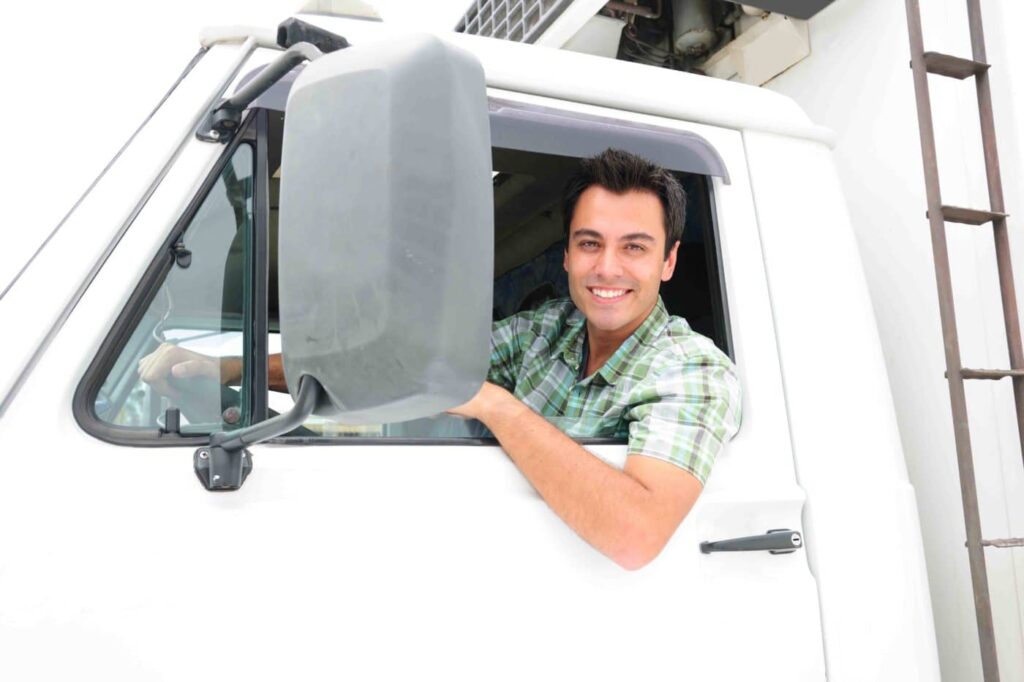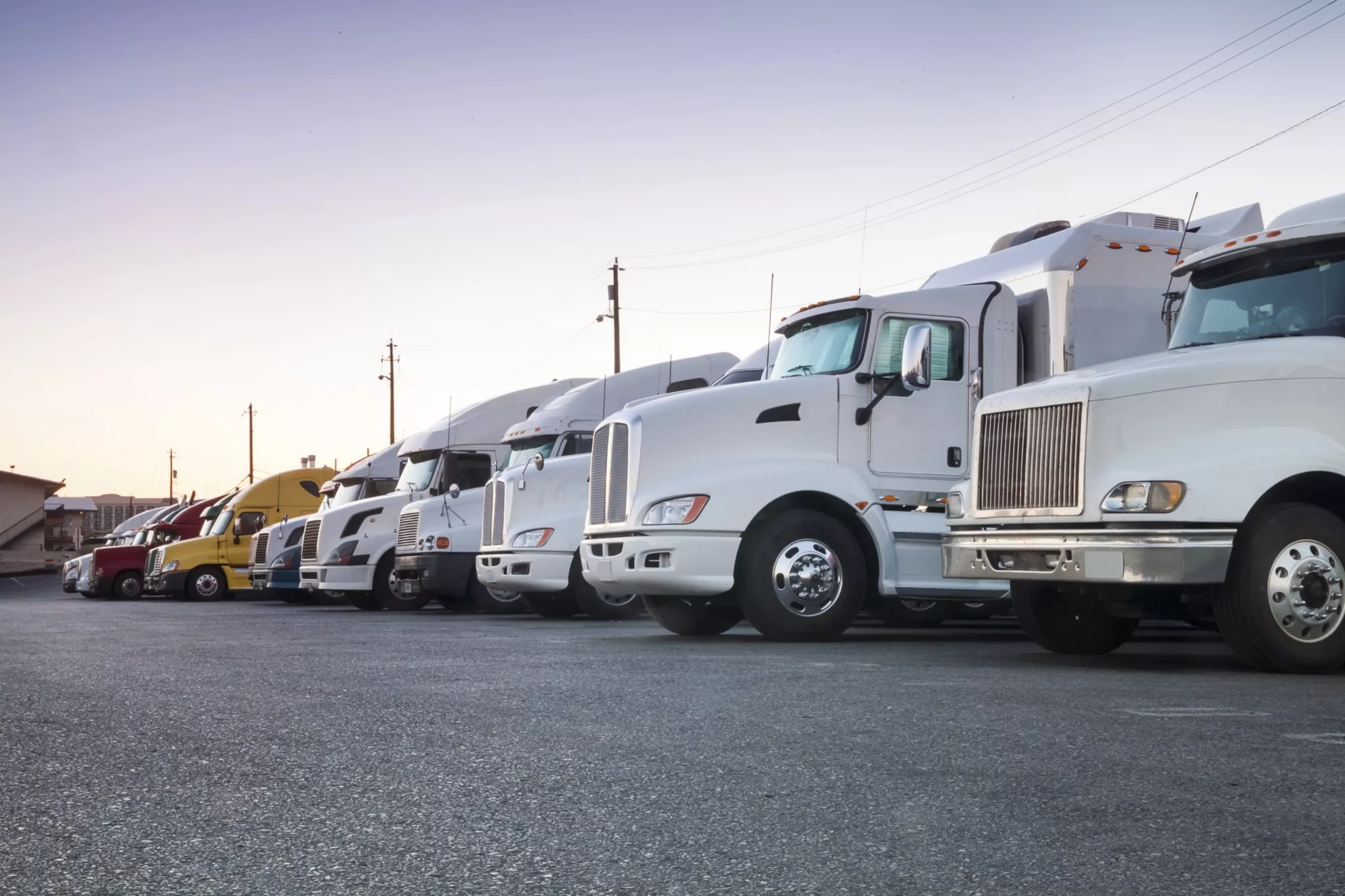The ownership and management of one’s own trucking business is an appealing line of work that offers plenty of potential benefits and advantages. How to become an owner-operator truck driver and what are the steps towards achieving the goal?
Look at our guide to get an in-depth understanding of the many processes involved in becoming an owner-operator truck driver.

The Initial Measures: Acquiring an Understanding of Your New Profession
There are a few things that you need to take into consideration before you decide to get started building your company and be an owner-operator truck driver.
Is this the way you want your professional life to go? The answer to this question will probably be yes if you have a passion for driving and logistics. Also, you should understand all the pros and cons of being an owner-operator truck driver. As an owner-operator truck driver, you may not immediately see a return on your original investment. Keep this in mind, and be sure to mentally prepare yourself for the possible strain and worry of owning your own company.
What are the first steps to becoming an owner-operator truck driver? Have you attained the prerequisite requirements required? To be eligible for a commercial driver’s license, or CDL, you will first need to get a regular driver’s license that is in good standing and have no pending legal judgments.
Are you conscious of the costs that await you in the future? The operation of your new company will subject you to various expenditures, some of which include the payment of ongoing vehicle maintenance and insurance costs and any relevant taxes. You need to be ready to meet these expenditures, and you also need to understand how their influence may affect your profitability. Are you determined to succeed in your new line of work? Your return on investment (ROI) and benefits will be significantly increased if you successfully operate your owner-operator trucking firm. This does need dedication, so be sure that you are prepared to invest your time in achieving this objective.
How to Get Started: The Steps You Need to Take to Become an Owner-Operator Truck Driver
- Obtain Your Qualifications
You will need to get your commercial driver’s license before starting a career as an owner-operator truck driver. This is the first step in the process. Your ordinary driver’s license will need to be supplemented with this supplementary license in order for you to be able to operate heavy goods trucks or vehicles transporting cargo that has been registered as hazardous. The Commercial Driver’s License (CDL) is the first significant step in operating your own logistics company.
The Department of Transport will conduct a physical test as part of the CDL application procedure in order to evaluate applicants’ levels of physical fitness. You will also need to choose the right sort of license for your company model since the requirements for operating various kinds of commercial vehicles vary depending on the degree of license held by the driver.
- Gain an understanding of the Expenses Faced by Owner-Operator Truck Drivers
A strong foundation for a successful company is a solid strategy for the company’s future. Examine your financial situation and ensure you are on top of all the costs you will incur in the first year you are in business. Consider the costs associated with becoming an owner-operator truck driver. These costs include things like the necessary equipment, as well as insurance and other everyday costs.
It takes time to build a successful trucking enterprise, and, probably, you will not begin to see appropriate returns on your investment for at least a year after beginning your new profession as a truck driver. This is because starting a new career often involves a learning curve. In certain circumstances, this might take much longer. Having an understanding of your financial situation and working up a strategy for managing them can assist in shielding you from the possibility of declaring bankruptcy.
- Keep in Mind the Tax Deductions Available to Owner-Operator Truck Drivers
As you work on developing a strategy for your company, it is important to keep in mind that a significant portion of the costs will also contribute to the tax savings you qualify for as an owner-operator truck driver. Your yearly tax liability may be reduced by deducting expenditures such as those associated with the purchase of equipment and its upkeep.
It is vital to keep this point in mind since the money you will save on your tax payments will make it much simpler for you to plan the future of your company effectively.
- Build Your Setup
For you to successfully run your own trucking company, you will need a significant quantity of equipment. Naturally, the truck itself will be the biggest expenditure in this scenario, and as such, you should give careful consideration to the kind of vehicle that will best serve the needs of your new company. Think about the kinds of goods you will be transporting and the kinds of routes you will travel before making any decisions.
When you are putting together your set of equipment, be sure to keep your company strategy and your budget in mind. If you discover that your initial research and projections were drastically off, you may need to return to the stage before this one and construct a new business plan for your company.
- Register Your Business
The Commercial Driver’s License, or CDL, is the foundation upon which you may build your license and registration as a commercial truck driver. Before you are allowed to take freight out on the road, you may need to get additional licenses beforehand, depending on the state in which you do business. You may get assistance determining which licenses you need from the Department of Transport in your state or another relevant authority.
In addition to that, you will have to register your firm. Even though it is probable that your owner-operator firm may operate in many states, you will still need to register it in the state where your primary office is located. You may choose to run your company out of your own house in order to save on overhead expenses; nevertheless, you will still be required to register this location as your place of business.
- Make a Decision On Your Career Path
You, as the owner-operator, have the option of either running the business under your own control or leasing it out to a different firm. Each alternative has a variety of perks and drawbacks, depending on how you look at it.
If you want to function on your own power, it will be up to you to attract customers and build your business operations. In addition, the management of your company will provide you with more leeway and independence.
Leasing to a company will make it simpler for you to locate the loads and contracts you need to expand your business; nevertheless, the terms and conditions of the company to whom you lease will determine how you conduct your business. After giving careful thought to both possibilities, you should choose which kind of commercial enterprise is most suitable for you, taking into account both your immediate and long-term goals.
- Obtain Insurance
The choice you make in the stage before this one also has an effect on the kind of insurance coverage you need. If you want to collaborate with an organization, that business could be able to provide you with part of the necessary insurance coverage if you do so. If you want to do business on your own terms, you will be entirely responsible for obtaining and paying for your own insurance.
Varying states and jurisdictions will have different insurance requirements. It is essential that your insurance protects you in all of the various regions in which you want to do business. This will ensure that you are in full compliance with all applicable laws and provide you with total peace of mind.
- Make a plan for how you will connect with potential employers
As the owner and operator of a trucking firm, one of the most important aspects of your job is to search for tasks and loads to haul. You might get assistance from online load boards when searching for cargo from freight brokers. This is an efficient method for discovering the employees you need in order to develop your company.
It will become much simpler for you to locate the loads you need to generate a return on your investment as you work to strengthen the connections you have with clients and consumers. It is also possible that you may discover you need to expand your activities in order to meet the demand.
Try Logity Dispatch to Get Your Owner-Operator Business Off to a Great Start
We at Logity Dispatch can assist you in establishing a profitable owner-operator company that will function efficiently. Get in touch with a staff member right away for more information.







